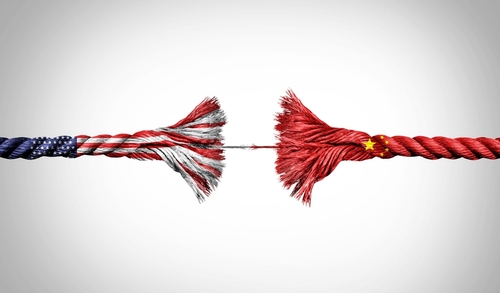Tech Policy in a Second Trump Administration: AI Promotion and Further Decoupling from China

By: (Covington & Burling)
Technology companies are likely to face significant challenges under the second Trump administration. President-elect Trump has pledged to advance policies aimed at accelerating the technological decoupling of the United States from China. At the same time, he is expected to take a more laissez-faire approach to regulating artificial intelligence, reversing several Biden-era policies on AI and other emerging technologies.
Throughout his campaign, President-elect Trump emphasized his intention to use industrial policy tools—including tariffs, outbound investment restrictions, export controls, and other economic and national security measures—to deepen the decoupling of U.S. technological supply chains. These policies are expected to limit cross-border innovation and curb commercial ties with Chinese entities or U.S. entities operating in China.
Trump’s approach to decoupling from China is anticipated to be a more aggressive extension of the Biden administration’s strategy, which aimed to outpace China in domestic innovation while restricting the export of critical technologies to “countries of concern.” Recent Biden-era initiatives include a proposed Commerce Department rule regulating connected vehicle technologies and a Justice Department rule targeting access to sensitive data in such countries. Additionally, the Treasury Department recently finalized its long-awaited rule limiting outbound investments to certain foreign entities.
On Capitol Hill, the bipartisan House Select Committee on Strategic Competition with the Chinese Communist Party played a key role in advancing policies aligned with this two-part strategy during the 118th Congress. While lacking direct legislative power, the committee has influenced U.S.-China policy and will continue its work in the next Congress under House Speaker Mike Johnson, focusing on hearings and investigations into U.S. business activities in China.
When President-elect Trump assumes office, he is expected to maintain the two-pronged approach of his predecessor. However, his administration is likely to prioritize restricting foreign technologies over fostering domestic innovation…
Featured News
Belgian Authorities Detain Multiple Individuals Over Alleged Huawei Bribery in EU Parliament
Mar 13, 2025 by
CPI
Grubhub’s Antitrust Case to Proceed in Federal Court, Second Circuit Rules
Mar 13, 2025 by
CPI
Pharma Giants Mallinckrodt and Endo to Merge in Multi-Billion-Dollar Deal
Mar 13, 2025 by
CPI
FTC Targets Meta’s Market Power, Calls Zuckerberg to Testify
Mar 13, 2025 by
CPI
French Watchdog Approves Carrefour’s Expansion, Orders Store Sell-Off
Mar 13, 2025 by
CPI
Antitrust Mix by CPI
Antitrust Chronicle® – Self-Preferencing
Feb 26, 2025 by
CPI
Platform Self-Preferencing: Focusing the Policy Debate
Feb 26, 2025 by
Michael Katz
Weaponized Opacity: Self-Preferencing in Digital Audience Measurement
Feb 26, 2025 by
Thomas Hoppner & Philipp Westerhoff
Self-Preferencing: An Economic Literature-Based Assessment Advocating a Case-By-Case Approach and Compliance Requirements
Feb 26, 2025 by
Patrice Bougette & Frederic Marty
Self-Preferencing in Adjacent Markets
Feb 26, 2025 by
Muxin Li